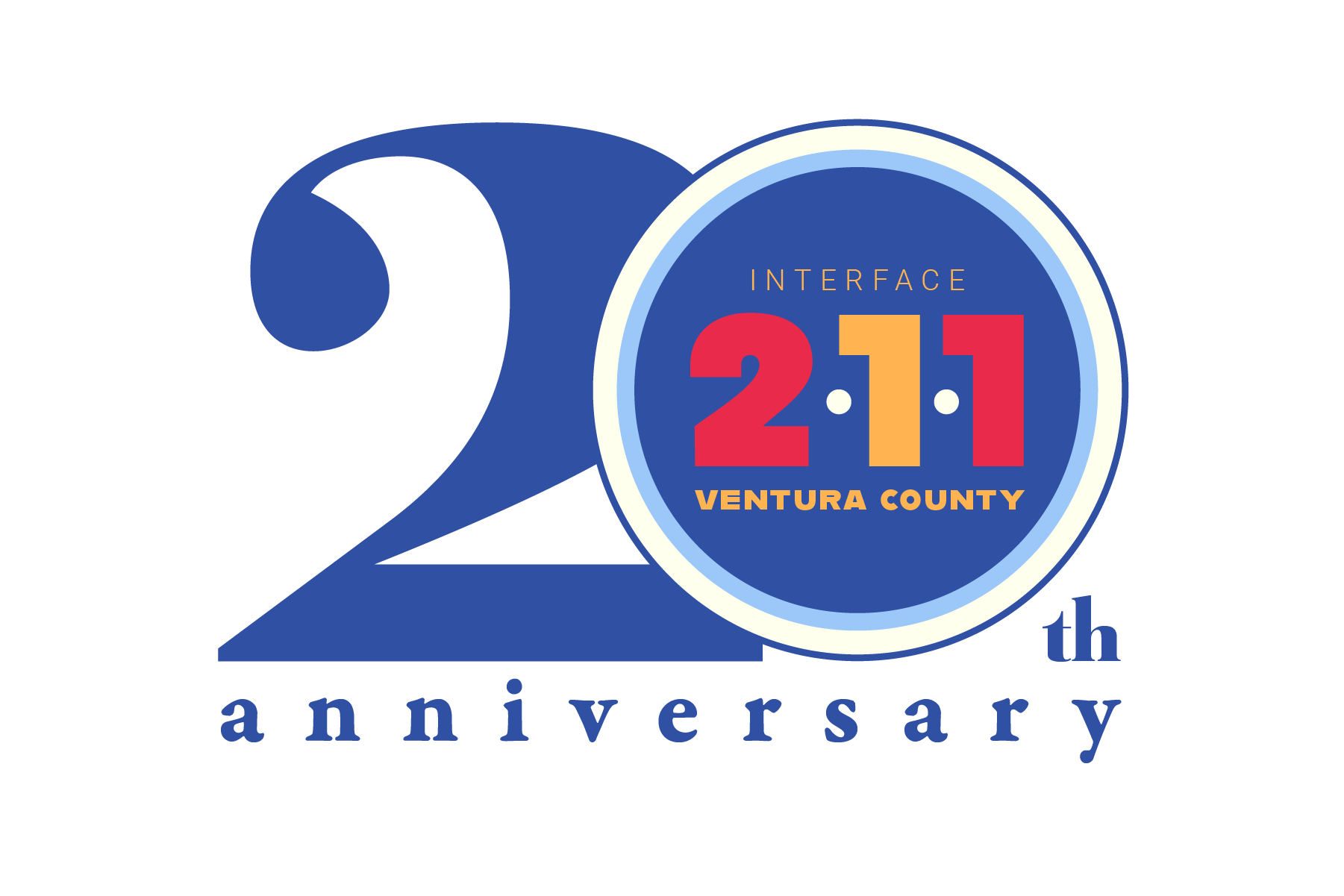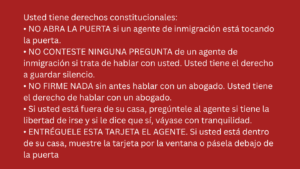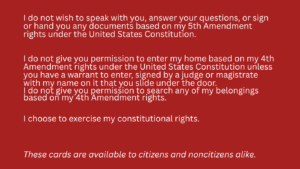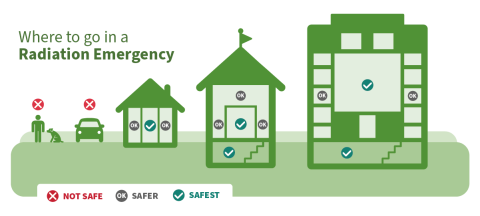When communities face challenging situations, 211 connects residents to resources and support services. 211 Ventura County is a program of Interface Children & Family Services, a non-profit organization unaffiliated with county, state, or federal government agencies. 211 is dedicated to serving all community members regardless of their immigration status, country of origin, political affiliation, or any other demographic characteristic.
Select a situation below to find relevant resources and assistance.
Immigration Enforcement Activities
Legal Aid
Legal Assistance Services: If you need legal assistance with immigration matters, such as family petitions, preparation of immigration forms, or detention, you can click on Immigration Legal Services to search for free or low-cost resources in Ventura County.
Information and Assistance
Centro de Información y Asistencia a Personas Mexicanas (CIAM)
The Center for Information and Assistance for Mexicans (CIAM) is a call center that can help with consular services, assistance locating family and friends, including locating a detained family member, advice on legal and immigration matters, and counseling if you have been the victim of abuse or fraud. CIAM is available 24 hours a day, 7 days a week: (520)-623-7874
ICE Online Detainee Locator
To search for someone who may be detained use the U.S. Immigration Customs and Enforcement Online Detainee Locator to locate a detainee who is currently in ICE custody or who has been in U.S. Customs and Border Protection’s custody for more than 48 hours.
Office of Congresswoman Julia Brownley
For help with general immigration-related concerns or case-specific issues involving federal immigration agencies, you may contact the Office of Congresswoman Julia Brownley. Her office may assist with:
- Checking the status of an immigration case or application
- Detention Facility location assistance
- Locating a detained family member
- Confirming whether there is a deportation or removal order
Note: This office does not provide direct legal representation.
If you do not live in the 26th district, you can go to the United States House of Representatives website and enter your zip code to find your representative.
Rapid Response
Rapid Response Networks in California respond to Immigration and Customs Enforcement (ICE) detentions and raids in our communities. Many counties have a local rapid response hotline available 24/7. If the person was detained by ICE within the last 24 hours, contact your local rapid response hotline.
805 Immigrant Rapid Response Hotline: Call 805-870-8855 or text "ALERTA" to receive real-time updates, including updates about ICE activities in the area. The 805 Immigrant Rapid Response Network provides local support and resources to anyone facing immigration enforcement actions in Ventura County.
VC Defensa: Call 805-296-1119 to learn of possible ICE activtity in your area. VC Defensa is a coalition of local organizations dedicated to protecting the immigrant and refugee population in Ventura County.
Know Your Rights Red Cards
All people in the United States, regardless of immigration status, have certain rights and protections under the U.S. Constitution.
Know Your Rights Red Cards are wallet-sized cards to help individuals understand their rights during encounters with immigration enforcement.
These cards include the list of rights in Spanish on the front of the card and English text on the back for ICE agents, making it clear that the individual is choosing to remain silent.
Click on the images above to be directed to the Immigrant Legal Resource Center (ILRC) website to print your Red Card at home. If you're visiting this page from a mobile device, you can click on the images to save them on your phone.
Immigrant Legal Resource Center (ILRC) Immigration Preparedness Toolkit
The Immigrant Legal Resource Center (ILRC) offers a practical guide to help immigrants with no legal status or in mixed status families better understand their legal options.
The free ILRC Immigration Preparedness Toolkit includes tips on knowing your rights during ICE confrontations, planning for legal consultations, and accessing additional resources.
If You Are Detained
- You have the right to call a lawyer or your family if you are detained, and you have the right to be visited by a lawyer in detention.
- You have the right to have your attorney with you at any hearing.
- Most people are eligible to be released by bond or with other reporting conditions.
- If you are denied release after being arrested, ask for a bond hearing before an immigration judge.
Visit the ACLU Know Your Rights page to learn more.
Resources for Children and Families
Guidance for Immigration Issues Impacting Minors
- The Immigrant Legal Resource Center Family Preparedness Plan has information about how to make a plan that includes how to plan for who can care for your children if you are unable to and what information and documents you should have ready for your children. The Plan also includes information about getting legal advice and the Know Your Rights Red Card information in the section above.
- The California Courts Self-Help Guide has information about the different types of forms you can use to ensure whoever would care for your children is able to handle school and medical issues.
Unaccompanied Children Who Have No Lawful Immigration Status
The Administration for Children & Families' Office of Refugee Resettlement (ORR) is responsible for children who do not have lawful immigration status and do not have a parent or legal guardian in the United States. These children may be referred to as "unaccompanied alien children". The ORR's Unaccompanied Alien Children (UAC) Bureau takes unaccompanied alien children in the least restrictive setting that is in the best interest of the child.
To find a child in the care of the Office of Refugee Resettlement, contact the ORR Parent Hotline by calling, texting, or emailing:
Call 1-800-203-7001, text NINOS to 66467 (24/7), or email: informtation@ORRNCC.com
México Te Abraza
México Te Abraza, is a program by the Mexican government to support individuals who are returning voluntarily or have been returned to Mexico. It assists with the repatriation process and helps people reintegrate with the support of the Mexican government. The program includes ten Welcome Centers along Mexico's border, offering assistance to those who have been deported or are returning voluntarily.
México Te Abraza provides the following supports:
- Assistance with repatriation process
- Prepaid card with 2000 pesos
- Free transportation to city of origin
- Help finding a job
- Help with senior pensions for older adults
Watch President Sheinbaum share her message on the goals of the México Te Abraza program.
Learn more about México Te Abraza: Gobierno de México.
Mexican Consulate
Visit your nearest Mexican Consulate if you need assistance with personal documents, travel documents, or to learn more about the México Te Abraza program.
The Mexican Consulate in Oxnard is located at
3151 West 5th Street, Suite 100
Oxnard, CA 93030
Consulate Phone Number: 805-330-3060
Hours: Monday through Friday 8am to 5pm
Other Resources
If your household has been impacted by a deportation or potential deportation and you need other help (like food, rent and utility assistance, mental health, etc.) please use our Guided Search.
Natural Disasters
If you are experiencing or experienced a natural disaster such as, earthquake, wildfire, flooding, or other extreme weather, follow our general safety guide. You can also find live resources for Ventura County disasters at 211Now.com
 Before a Disaster
Before a Disaster
- Make an Emergency Plan: Include evacuation routes, meeting points, and emergency contacts.
- Build an Emergency Kit: Pack water, non-perishable food, flashlight, batteries, first aid, medications, important documents, and cash.
- Stay Informed: Sign up for local alerts such as Ready Ventura County and warnings (e.g., Wireless Emergency Alerts, NOAA Weather Radio).
- Know Local Hazards: Understand the risks in your area and prepare accordingly.
- Have a Communication Plan: Make sure family members know how to reach each other.
- Secure Your Home: Anchor heavy items, reinforce doors/windows, and keep emergency tools (fire extinguisher, shut-off wrenches) accessible.
 During a Disaster
During a Disaster
- Follow Official Instructions: Listen to emergency services and alerts via radio, TV, or phone.
- Stay Calm and Act Quickly: Prioritize safety over possessions.
- Evacuate If Advised: Don’t delay. Take your emergency kit and go to designated shelters if needed.
- Shelter in Place If Required: Close all doors and windows, and stay inside until it's safe.
- Avoid Hazard Areas: Steer clear of downed power lines, floodwaters, or damaged buildings.
 After a Disaster
After a Disaster
- Check for Injuries and Hazards: Provide first aid and report hazards like gas leaks or fallen lines.
- Avoid Using Contaminated Water: Wait for official word that it’s safe.
- Don’t Enter Damaged Structures: Wait for inspection before re-entering your home.
- Document Damage: Take photos for insurance claims.
- Take Care of Mental Health: Disasters can be traumatic—seek support if needed.
Public Health Emergencies
Mass Violence/Mass Casualty Events
If you are near or witness a mass casualty event (such as a shooting, bombing, large accident, or natural disaster with many injuries), your actions can save your life and possibly others’. Here's what to do:
IMMEDIATE ACTIONS – Protect Yourself First
- Run, Hide, or Fight (if it’s an active shooter or attack):
- Run: Get away if there’s a clear, safe escape path.
- Hide: Stay out of sight, silence your phone, lock or barricade doors.
- Fight: As a last resort, use anything available to defend yourself.
- If you have a disability, review this guide from the California State Council on Developmental Disabilities
- Find Safety: Get behind cover, stay low, and move away from danger (explosions, gunfire, fire, etc.).
- Avoid Crowds or Unsecured Areas: Secondary attacks or hazards may follow.
Call for Help – As Soon as It’s Safe
- Dial 911: Give clear info about your location, what you see (e.g., injuries, ongoing threat), and your name.
- Follow Emergency Instructions: Listen to dispatchers, first responders, or alerts carefully.
Help the Wounded – If It’s Safe
If you are trained and the area is secure:
- Stop the Bleed: Apply pressure to wounds, use tourniquets if needed.
- CPR/AED: If someone is not breathing and has no pulse, and you’re trained, start CPR.
- Triage Wisely: Prioritize those with life-threatening but treatable injuries. Avoid moving victims with head/spinal injuries unless necessary.
Stay Safe & Aware
- Avoid Touching Unknown Objects: There could be secondary devices or hazards.
- Be Alert for Additional Threats: Stay cautious until cleared by authorities.
- Help Authorities: If you saw something important, be ready to give a statement once it’s safe.
After the Event
- Listen for Updates: Follow trusted news or local officials for instructions on lockdowns, evacuations, or reunification points.
- Take Care of Your Mental Health: Mass casualty events are traumatic. Seek counseling or crisis services.
- Check on Loved Ones: Let family/friends know you're safe if communications are still working.
Civil Unrest/Community Tensions
Before Civil Unrest
-
Stay Informed: Monitor trusted news sources, social media (with caution), and emergency alert systems.
-
Avoid High-Risk Areas: Know where protests, demonstrations, or disturbances are happening and steer clear.
-
Prepare Emergency Supplies: Have enough food, water, medications, and essentials to last several days.
-
Secure Your Home: Lock doors and windows; consider shutters or boarding windows if unrest is near.
-
Have an Exit Plan: Know multiple routes out of your neighborhood in case evacuation is needed.
During Civil Unrest
-
Stay Indoors: Remain at home if possible. Avoid going out unless absolutely necessary.
-
Keep a Low Profile:
-
Don’t draw attention to yourself.
-
Avoid wearing political or provocative clothing.
-
-
Do Not Engage: Avoid protests or crowds—even peaceful ones can turn volatile quickly.
-
Limit Social Media Sharing: Posting your location or details about protests can endanger you or others.
-
If Caught in a Crowd:
-
Move to the edge and exit calmly.
-
Don’t run or push.
-
Protect your head and stay on your feet.
-
If Violence Reaches Your Area
-
Shelter in a Secure Room: Stay away from windows; turn off lights to avoid attracting attention.
-
Call Authorities Only If Necessary: Emergency services may be overwhelmed—use 911 for immediate threats only.
-
Avoid Confrontations: Don’t try to stop looters or confront agitators.
-
Turn Off External Lights: To avoid being a visible target from the street.
After Civil Unrest
-
Wait for the All-Clear: Don’t leave your shelter until officials say it’s safe.
-
Assess and Report Damage: Safely inspect your home, and report damage or ongoing threats to authorities.
-
Support Mental Health: Civil unrest can be traumatic. Seek support from professionals or community resources.



 Before a Disaster
Before a Disaster  During a Disaster
During a Disaster  After a Disaster
After a Disaster